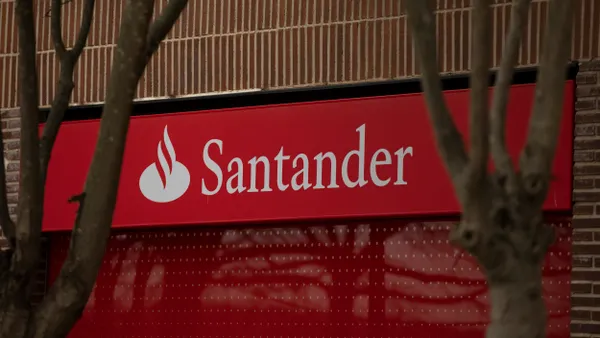Dive Brief:
- Dearborn, Michigan-based DFCU Financial is acquiring Florida-based Winter Park National, to expand into central Florida, the companies announced Friday.
- DFCU Financial’s third acquisition within Florida in the last two years will expand the credit union’s existing presence in Florida; its existing footprint covers Tampa, St. Petersburg, Naples and Fort Myers.
- The transaction is expected to be integrated in 2025 and awaits regulatory approval, the companies said.
Dive Insight:
The latest transaction by DFCU Financial marks the 20th whole bank-credit union deal announced this year. Last month, with Phoenix-based OneAZ Credit Union’s proposed acquisition of 1st Bank Yuma, 2024 surpassed 2022’s previous record of 16 deals.
Though these deals are only one-fifth of all bank mergers and acquisitions, “there has been an uptick,” according to Michael Bell, a partner at law firm Honigman, which assisted DFCU in the transaction.
“I think it largely resides in certain community bank sellers voluntarily choosing to prefer an all cash buyer,” Bell said via email, adding that the Federal Reserve’s half-point rate cut won’t necessarily help or hurt the deal flow.
“Deal flow at this small end of the market is driven more by other factors,” he said.
DFCU Financial marked its entry into Florida by acquiring Tampa-based First Citrus Bank in January 2023, which boosted the combined entity’s assets past $7 billion. In September 2023, DFCU Financial bought MidWest One Bank’s Naples and Fort Myers operations. The deal resulted in eight DFCU Financial branch locations in Florida.
DFCU Financial has 28 full-service Michigan branches, in metro Detroit, Ann Arbor, Grand Rapids and Lansing.
The latest deal will allow the combined entity to expand its products and services to a broader base of members beyond Michigan, the credit union said.
“Winter Park has been a cornerstone of the Central Florida financial community, and we look forward to building on their legacy by offering our comprehensive, member-centric approach to banking,” Ryan Goldberg, president and CEO of DFCU Financial, said in a statement.
The financial terms of the deal were not disclosed.
Founded in 2017, Winter Park National Bank serves the Winter Park-Orlando-Kissimmee area offering financial products and services to small and medium-sized businesses, owners, and employees. The commercial bank, with 32 staff members, has two branches in Winter Park and Longwood.
Following the deal, DFCU Financial, established in 1950, plans to retain WPNB’s branch locations while expanding its infrastructure and rebranding Winter Park’s Orlando branches under the DFCU Financial name, the credit union said.
As part of the agreement, Winter Park National’s CEO David Dotherow has been named president of Central Florida, and he will “retain leadership responsibilities” for the former WPNB operations, according to the press release.
DFCU Financial’s commitment to clients, employees, and communities aligned with Winter Park National’s values, Dotherow said. “Together we look forward to strengthening relationships with our clients and reaching new customers across the region,” he said, adding that “DFCU’s support in maintaining our local leadership and team ensures we’ll continue to grow and serve Central Florida with excellence.”
The recent uptick in bank-credit union deals has irked trade groups like the Independent Community Bankers of America, who have said the tax-exempt nature of credit unions allows them to offer a higher purchase price.
In a recent letter to National Credit Union Administration Chairman Todd H. Harper, American Bankers Association CEO Rob Nichols noted that as credit unions grow and become more complex, transparency around disclosures to members and the public is increasingly essential.
Nichols urged Harper to “implement additional transparency requirements relating to the increasingly complex and concerning activities of some credit unions, namely merger transactions involving banks.” He asked the NCUA to require credit unions buying banks to receive member approval, mandate disclosure of financial terms for such mergers, and demonstrate how combining with banks might impact consumers, communities, and taxpayers.















